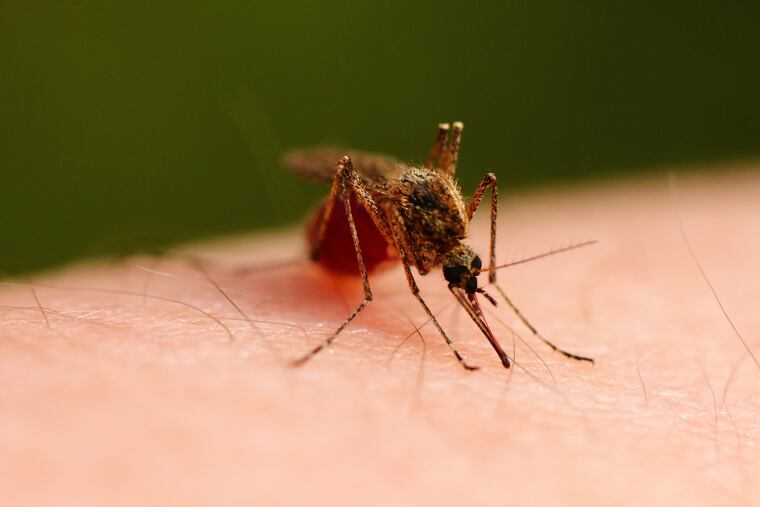With 11 West Nile cases so far this year, Philly asks residents to help
Officials are warning residents that mosquito season is not over and the Pennsylvania Department of Environmental Protection has said this year marks the highest level statewide for West Nile virus activity in the mosquito population since 2000.

So far this year, there have been 11 confirmed cases of West Nile virus in Philadelphia, prompting officials to ask residents to help stop the spread of mosquitoes on their properties.
West Nile is a virus most commonly spread by mosquito bites from summer through fall, and there are no vaccines or medications to treat it in humans. Most people with the virus do not have symptoms — which include unexplained headaches, weakness, and fatigue — and only about one in five people develops a fever, according to the U.S. Centers for Disease Control and Prevention.
But about one out of 150 people infected with the virus get seriously ill with inflammation of the brain or spine. In some cases, the virus is fatal. People 50 years and older are at highest risk for serious illness.
None of this year's cases in Philadelphia have been fatal. The number of West Nile cases tend to wax and wane from year to year. The peak seasons in Philly were 2003, 2010, and 2012. The last five years have been mild. This year marks a sharp increase from the three cases diagnosed in 2017.
The health department is cautioning residents that mosquito season is not over. And the Pennsylvania Department of Environmental Protection has said this year marks the highest level statewide for West Nile virus activity in the mosquito population since 2000.
As a result, the city's health department is taking steps to control mosquitoes but is asking for the public's help too.
"We all have a role in preventing the spread of West Nile virus," said Health Commissioner Thomas Farley. "And it's easy to do: Wear mosquito repellent and dump out standing water."
So far this year, the health department has treated 57,000 storm drains with larvicide to stop mosquito breeding and has sprayed to kill adult mosquitoes in some areas of the city.
The most effective way to control mosquitoes is to keep them from breeding. According to the health department:
Anything that can hold water can breed mosquitoes, from soda bottle caps to discarded tires. Check your property for sources of standing water — including flower pots, pet food, water dishes, birdbaths, and swimming pool covers — and dump them out.
Empty and store wading pools on their side.
Keep rain gutters clean.
Aerate ornamental ponds or stock them with fish.
In addition, wear wear long-sleeved shirts and long pants and insect repellent with DEET, picardin, eucalyptus oil, or PMD if you go outdoors. Or, consider staying inside at dawn, dusk, and early evening when mosquitoes are most active.
To report problem areas, call the health department's mosquito complaint hotline at 215-685-9000.